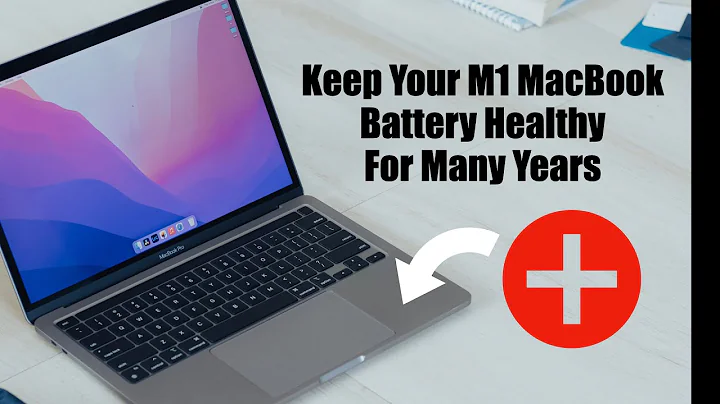Battery of plugged in all the time?
I have always been afraid on how to treat my laptop, because I wanted it to last as long as possible, I have done a lot of researches in the past and I can share you my experience and what I learned.
Modern laptops use lithium Ion (Li-ion) batteries, which are not subjected to overcharging or "memory effect". This means that you can charge your laptop whenever you have the opportunity to, even for small amounts of time, without having to be concerned. Every battery has a lifespan in charge cycles, depending on various factors, but usually it is around 500 complete charging cycle (from 0% to 100%, so if you charge it from 30% to 80%, it will count half a cycle on battery).
The main degrading factor for lithium batteries is heat, whether it is caused by the environment you are, or by the stressful conditions your laptop is working on. Whenever your laptop gets too hot, and your battery too, it suffers, and this will reduce lifespan over time. The only way you may have to protect your battery from heat would be to detach it while you are connected to AC, but this is not an option on modern laptops.
There is another factor to keep in mind, which is low and high percentages. You can find plenty of researches of this online but the general point is that when battery discharge over some point (around 20%) they enter a more stressful state, and the same is true for high percentage (80%-90%).
So to sum up, Li-ion batteries does not like stress, whether it is heat, high or low percentage. You should avoid letting you battery discharge down to 0%, a good practice is to charge it when it reaches 20%-30%, and also would be nice for it to be unplugged before it reaches 100%, because again, after around 80%, it enters a stressful state, and you can also observe that charging is slower at some point. You should also avoid charging it when it is too hot, it is better to leave it rest for a while, so that it can cool down, and then you can charge it, so that you avoid stressing it.
Obviously in every day life it is fairly impossible to follow best practices, and sometimes you will heat it too much, or make it discharge or whatever. But that is not a problem, if those things happens rarely, you will be fine, just try not to put too much stress on it.
Then you have to consider how you plan and need to use it, what is more important for you, battery life or performance.
In my case I have two laptops and a chromebook. I use my main laptop, which is an Asus vivobook pro, plugged in all the time, and I've been doing that for a year and a half now, it has never used to last a lot, when I first bought it battery used to last like 2-3 hours, and if i unplug it now it's almost the same. Then I have a Dell XPS 15, which lasts much more, I was able to get 8-10 hours on it without letting it die, and I use it in stressful conditions, both environmental and because of the work I do on it. It also has more than a year, and I haven't seen any degrade on battery. Then I have a chromebook which I use on a daily basis during weekdays, and I charge it everyday or once in two days. I let them charge to 100% for convenience, so that i can get the most out of the battery but I try not to let them go under 20%.
As you can see it depends a lot also on the battery itself and how the hardware and the operating system will manage it, and then come other factors as I said. In your case, as far as I know, thinkpads has very long battery life, so you should be able to use it for the entire day an then charge it at the evening, unless you need it on all the time. I would anyway, if possible, avoid letting devices charge overnight, of course they stop when they reaches 100%, but they also slowly discharge a bit, and as long as they are plugged in, they will be kept 100% all the time, so the battery will lose a little bit of capacity, and it will be filled up again immediately, and as you can guess this put a stress on it.
In conclusion, you should not worry too much about battery on your devices, I had been doing that for a while, and I still tend to, but the effort is not worth the time, batteries will degrade anyway, so the best advice I can give you is use it as you need to, just try to follow the best practices and avoid stress when possible.
(I apologize for any english mistake in advance, I am not a native speaker)
Related videos on Youtube
Lazar Gugleta
Software engineer. Creative and innovative, full-time student. Studying at the Techincal University of Graz. Contact me: lazargugleta.github.io
Updated on September 18, 2022Comments
-
 Lazar Gugleta over 1 year
Lazar Gugleta over 1 yearI just bought a new laptop and I want to treat it right. So I have a question about the battery. Laptop is Lenovo Thinkpad T480s. In your opinion, what is the better way of dealing with power? Plugged in all the time or on battery?
-
 FedKad about 5 yearsI prefer to have it plugged in while the laptop is running, but certainly plugged out when it is powered down.
FedKad about 5 yearsI prefer to have it plugged in while the laptop is running, but certainly plugged out when it is powered down.
-
-
danzel about 5 yearsI don't know about thinkpads, but my HP probook has a BIOS setting that can prevent the charge controller from holding the battery at 100% charge. That being said, the actual capacity range used nowadays is a lot less than the theoretical capabilities of the battery. Both to account for manufacturing tolerances and to increase lifespan. That's the reason why manually keeping the charge between 20% and 80% has less effect than it used to when lithium batteries were first introduced. Anyways, +1 for the elaborate answer!
-
 Lazar Gugleta about 5 yearsThis is great feedback @Greg. Thanks for the examples and explanation of how the batteries work.
Lazar Gugleta about 5 yearsThis is great feedback @Greg. Thanks for the examples and explanation of how the batteries work.




